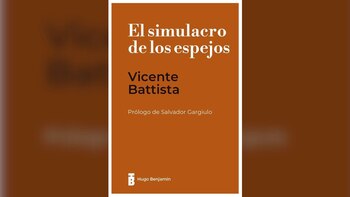INTERNACIONAL
‘Can I finish?’: Sotomayor spars with Alito during LGBTQ classroom books case
Justices Samuel Alito and Sonia Sotomayor snapped at each other during Tuesday’s arguments over parental rights in LGBTQ curriculum after the liberal justice attempted to jump back into the questioning as Alito was speaking.
The short quarrel happened as the high court listened to arguments in Mahmoud v. Taylor, in which a coalition of parents sought to solidify the right to be informed about and opt their children out of reading LGBTQ-related material in elementary schools — which they argue conflicts with their faith.
Sotomayor initially asked Mahmoud attorney Eric Baxter about a particular book titled «Uncle Bobby’s Wedding» that included a same-sex relationship storyline and whether exposure to same-sex relationships in children’s books could be considered coercion.
PARENTS TELL SCOTUS: LGBTQ STORYBOOKS IN CLASSROOMS CLASH WITH OUR FAITH

Justices Samuel Alito and Sonia Sotomayor snapped at each other during Tuesday’s arguments over parental rights in LGBTQ curriculum after the liberal justice attempted to jump back into the questioning as Alito was speaking. (Getty)
«Our parents would object to that,» Baxter responded.
Sotomayor continued with her line of questioning to further clarify Baxter’s objection to the books. Baxter stated, «Our objections would be even to reading books that violate our client’s religious beliefs.»
Alito then jumped in with additional questions related to the book.
«I’ve read that book as well as a lot of these other books,» Alito began. «Do you think it’s fair to say that all that is done in ‘Uncle Bobby’s Wedding’ is to expose children to the fact that there are men who marry other men?»
Baxter objected to Alito’s question. Alito then said that while the book «has a clear message and a lot of people think it’s a good message,» some with «traditional religious beliefs don’t agree with» it.
As Alito continued with his explanation, Sotomayor jumped in.
«What a minute. The reservation is—» Sotomayor began.
‘LET US BE THE PARENTS’: SUPREME COURT SHOULD LET PARENTS OPT KIDS OUT OF LGBTQ SCHOOL LESSONS, LAWYER ARGUES
«Can I finish?» Alito said.
«It has a clear moral message, and it may be a good message. It’s just a message that a lot of religious people disagree with,» Alito finished.
As arguments wrapped, the Supreme Court appeared inclined to agree with the parents.

The short quarrel happened as the high court listened to arguments in Mahmoud v. Taylor, where a coalition of parents sought to solidify a right to be informed about and opt their children out of reading LGBTQ-related material in elementary schools that they argue conflicts with their faith. (Alex Wong/Getty Images)
A coalition of Jewish, Christian and Muslim parents with elementary school children in Montgomery County Public Schools in Maryland brought suit against the school board after it introduced new LGBTQ books into the curriculum as part of the district’s «inclusivity» initiative.
The curriculum change came after the state of Maryland enacted regulations seeking to promote «educational equity,» according to the petitioner’s brief filed with the high court.
THE SUPREME COURT APPEARS TO SIDE WITH PARENTS IN RELIGIOUS LIBERTY DISPUTE OVER STORYBOOKS
The parents lost both at the district court and the appellate level. The Fourth Circuit held that the parents had not shown how the policy violated the First Amendment.
The case comes at a time when President Donald Trump and his administration have prioritized educational and DEI-related reform upon starting his second term. The Supreme Court has notably also heard oral arguments this past term in other religious liberty and gender-related suits.

A coalition of Jewish, Christian and Muslim parents with elementary school children in Montgomery County Public Schools in Maryland brought suit against the school board after it introduced new LGBTQ books into the curriculum as part of the district’s «inclusivity» initiative. (Becket/Getty Images)
The high court heard oral arguments earlier this month in a suit brought by a Wisconsin-based Catholic charity group’s bid for tax relief. The decision could alter the current eligibility requirements for religious tax exemptions.
CLICK HERE TO GET THE FOX NEWS APP
Fox News’ Bill Mears, Shannon Bream, and David Spunt contributed to this report.
Supreme Court,Politics,Judiciary,Family Faith & Values,First Amendment Religious Freedom
INTERNACIONAL
Vicente Battista, premio Rómulo Gallegos: “La mejor respuesta al lenguaje soez es la ironía y el sarcasmo”

Lo primero fue un sticker: una mano que lo saludaba desde un chat de WhatsApp. Incrédulo, Vicente Battista se acomodó los anteojos y se acercó el teléfono a la cara. Estaba con su familia, de sobremesa. Era sábado, casi dos de la tarde. Afuera, una niebla enigmática abrazaba Buenos Aires. Adentro, la mano del sticker lo seguía saludando. Al remitente lo tenía agendado: Rafael Cuevas Molina, escritor guatemalteco, jurado del Premio Rómulo Gallegos. Su novela El simulacro de los espejos había sido postulada para el galardón; días atrás leyó que estaba entre los nueve finalistas. Enseguida llegó el mensaje, la confirmación: “Ganaste. Abrazos”.
A días de cumplir 85 años, Battista pone su nombre en el listado de un premio que supo reconocer a Mario Vargas Llosa, Gabriel García Márquez, Carlos Fuentes y Roberto Bolaño, y se coloca como el quinto argentino en obtenerlo, después de Abel Posse, Mempo Giardinelli, Ricardo Piglia y Perla Suez. Entre los nueve finalistas, había dos coterráneos: Selva Almada y Sergio Bizzio. El simulacro de los espejos, publicada por el sello Hugo Benjamín, se impuso entre la cifra récord de 474 obras de 32 países porque, según los jurados Perla Suez, Juan Antonio Calzadilla, Fermín Goñi, Abel Prieto y el mencionado Cuevas Molina, es “una de las grandes novelas contemporáneas”.
“Estoy contento por este premio. Es una alegría haberlo ganado”, dice ahora, desde su departamento en Capital, “en lo que antes se llamaba Barrio Norte y ahora le dicen Recoleta”, donde vive desde el año 1985. Antes pasó una larga estadía en Barcelona, en los años de la dictadura militar. “A España nos fuimos dos: Gloria, mi mujer, y yo. Y volvimos siendo cuatro, con Carla y Jimena. Ya no son chicas, cada cual tiene su profesión, su casa. Y yo ahora tengo también nietos. El tiempo pasa. Pero tengo a mi familia: Eso de estar solo, sufriendo y con lágrimas en los ojos… no es mi caso. “Lo celebré con mi familia, pero me quedé callado hasta que oficialmente lo anunciaron”.

Battista, que viajará a Caracas el dos de agosto para recibir el premio que otorga el Estado de Venezuela, dotado de 80 mil euros, un diploma y una medalla de oro, asegura que “la escritura estuvo siempre”: “Escribo desde mi más tierna infancia”, dice y recuerda una de las consignas que brillaba como mantra en la redacción de El escarabajo de oro, la revista literaria de fines de los sesenta y principios de los setenta que formó junto a Abelardo Castillo, Liliana Hecker, Arnoldo Liberman, Ricardo Piglia, Miguel Briante y tantos otros: “Uno no escribe para comerciar o para vivir, sino porque no le queda otra”. Como una condena, pero también como una misión.
En el portal de TeleSur, el medio público venezolano, titularon la noticia de este modo: “Jubilado argentino Vicente Battista gana Premio Internacional de Novela Rómulo Gallegos 2025”. El autor se ríe. “Voy a tener que ir a reclamar Anses”. Efectivamente, es jubilado, con la mínima, como periodista, y cobra mensualmente una retribución por ganar el Premio Municipal de Literatura en 1990. “Si no fuera por ese premio me moriría de hambre”, asegura. Battista es uno de los tantos jubilados argentinos que se la rebusca para vivir. Tiene un método de evasión, una arma crítica: la literatura. Siroco, El libro de todos los engaños y Cuaderno del ausente son algunos de sus tantos libros.
Este año se cumplen tres décadas de su Premio Planeta, en 1995, por Sucesos Argentinos. “Me lo recordaron mis hijas el otro día. Y treinta años después me dan el Premio Rómulo Gallegos. Así que más o menos de treinta a treinta no habrá nada, pero como estoy por cumplir 85 no puedo prometer nada para dentro treinta años, pero espero que se me recuerde con cariño”, dice entre risas. Battista defiende las instituciones que defienden la cultura. En su concepción el Estado es el gran engranaje que hace que los autores no tengan que venderle el alma al mercado. “Cadra, Argentores, Sadaic… ¡Joder!, ¡estamos trabajando!“, exclama.
“Si una editorial de gente joven me pide un cuento, se lo doy, pero si me lo pide Alfaguara o Planeta, también, pero cobro tanto. Le cobro al que está en condiciones de pagar. Al otro no: se hace por amor al arte. Lo hice cuando era joven y fuerte, y lo sigo haciendo ahora”, y continúa: “Digamos que este año se van a editar seis novelas. A la editorial le llegan sesenta. Entonces elige. ¿Este tipo o esta señora no está en redes? Entonces no me interesa. ¿No tuvo un escándalo, no mató a nadie, no es provocador? Más allá de la calidad, esa novela tiene más posibilidades que la de un escritor que escribe humildemente y hace textos de calidad pero de poca venta. ¿Te das cuenta?”
Una anécdota para graficar mejor el punto: “Hace muchos años me tocó ser jurado del Premio Municipal. Éramos cinco los autores, que no recuerdo ni quiero recordarlos, porque puedo perder la memoria pero no el optimismo, pero al que sí recuerdo es a Juan Carlos Martelli, que murió hace unos años. A Martelli y a mí nos había gustado mucho una novela de una escritora que vivía en el sur: un texto muy bueno, muy revolucionario. Pero los otros tres jurados se habían encariñado con una novela romántica del siglo XIX, que estaba bien, correctamente escrita, pero no venía a traer nada. Empezó la discusión y uno de los jurados dijo: ‘Pero además esta novela no se entiende nada’“.

La respuesta de Battista fue esta: “Cuando Joyce público Ulises había mucha gente como vos que decía que no se entendía nada. Eso no impidió que Ulises se convierta en la novela fundadora de la nueva literatura». La historia sigue así: “Ellos insistieron con esa novela romántica, entonces ahí dijimos con Martelli: ‘que figure que nosotros dos no adherimos al premio y listo’”. Battista trata de mantener una conducta, una ética, una fidelidad. “Me ha pasado que me digan: ‘Mirá, tenés que levantar esto y esto’. Bueno, no lo publiques. Y punto. Yo no voy a hacer concesiones porque no te cae bien a vos o al editor le parece violento. Yo de por sí no soy un autor de palabras soeces”, dice.
Así aparece, sobre el final de esta conversación telefónica, el lenguaje que utiliza Javier Milei para aludir a la oposición, al periodismo crítico, a los economistas heterodoxos, a quienes ponen en duda el paraíso al que dice llevarnos el gobierno luego de tanto sacrificio social: “La mejor respuesta a eso es la ironía, el sarcasmo. Esta gente que usa ese lenguaje soez, del presidente para abajo, no logra entender qué es una ironía, qué es un sarcasmo, porque están lejos de saberlo. Es la respuesta que podría dar Borges o incluso Bioy Casares, burlándose con toda claridad».
argentina,buenos aires,groucho marx,vicente battista
INTERNACIONAL
Bipartisan bill would grant legal status to certain illegal immigrant workers

NEWYou can now listen to Fox News articles!
Reps. Maria Elvira Salazar, R-Fla., and Veronica Escobar, D-Texas, introduced legislation on Tuesday to reform the U.S. immigration system, including offering legal status for certain illegal immigrants to continue working in the country amid President Donald Trump’s mass deportation policies.
The Dignity Act of 2025 would allow illegal immigrants who have been in the U.S. since before 2021 the opportunity to apply for up to seven years of legal status with work authorization. The immigrants would pay restitution and check in regularly with the Department of Homeland Security, and their legal status could be renewed based on good conduct and restitution.
The bill would offer a path to permanent residency, but the legal status afforded to the immigrants would not allow for any federal benefits or a path to U.S. citizenship.
«The Dignity Act of 2025 is a revolutionary bill that offers the solution to our immigration crisis: secure the border, stop illegal immigration, and provide an earned opportunity for long-term immigrants to stay here and work,» Salazar said in a statement. «No amnesty. No handouts. No citizenship. Just accountability and a path to stability for our economy and our future.»
MLBPA CHIEF SAYS FOREIGN PLAYERS TOLD TO CARRY DOCUMENTATION TO ‘KEEP THEIR JOB’
Reps. Maria Elvira Salazar, R-Fla., and Veronica Escobar, D-Texas, introduced legislation to reform the U.S. immigration system. (Getty Images)
The bill would be fully funded through restitution payments and application fees made by immigrants, meaning it will not rely on any taxpayer money.
The measure would also aim to end catch-and-release and further bolster security at the Southern Border as well as require employers across the country to use E-Verify, the government system for checking the legal status of workers.
It would also expand training, apprenticeships, and education for American workers.
The legislation seeks to address the Trump administration’s immigration crackdown, which has heavily affected farms and food service providers and included raids targeting migrant workers at local businesses, sparking protests in Los Angeles and elsewhere across the U.S. against the president’s mass deportation agenda.
A recent raid on two cannabis facilities in Southern California led to a few hundred migrant arrests and clashes between federal immigration agents and protesters. One person died after the raids and others were critically injured.
HOUSE UNANIMOUSLY VOTES TO MEMORIALIZE TEXAS GIRL ALLEGEDLY SLAIN BY ILLEGAL IMMIGRANTS

The legislation seeks to address the Trump administration’s immigration crackdown, which included raids targeting migrant workers at local businesses, sparking protests in Los Angeles and elsewhere. (David McNew/Getty Images)
«I have seen firsthand the devastating consequences of our broken immigration system, and as a member of Congress, I take seriously my obligation to propose a solution. Realistic, common-sense compromise is achievable, and is especially important given the urgency of this moment. I consider the Dignity Act of 2025 a critical first step to overhauling this broken system,» Escobar said.
«Immigrants – especially those who have been in the United States for decades – make up a critical component of our communities and also of the American workforce and economy,» she continued. «The vast majority of immigrants are hard-working, law-abiding residents; and, most Americans recognize that it is in our country’s best interest to find bipartisan reforms. We can enact legislation that incorporates both humanity and security, and the Dignity Act of 2025 offers a balanced approach that restores dignity to people who have tried to navigate a broken system for far too long.»
Congress has worked in the past on comprehensive immigration reform, but Salazar and Escobar are optimistic their bill could lead to significant bipartisan support.
A bipartisan group of 20 other House members have already signed onto the bill.

The legislation comes amid President Donald Trump’s mass deportation policies. (Win McNamee/Getty Images)
CLICK HERE TO GET THE FOX NEWS APP
«In conversations across NY-17, I’ve heard a lot of frustration, both from employers struggling to fill jobs and families looking to reunite with their loved ones,» Rep. Mike Lawler, R-N.Y., said. «We must do this by fixing our broken legal immigration system, securing our borders, and creating a fair, earned process for those who are already here and contributing. The Dignity Act honors America’s legacy of being a nation of immigrants and that’s why I’m proud to support it.»
The administration has already begun working to provide some protection for certain migrant workers, and Trump said last month he was considering a way for some migrant workers to remain in the U.S.
«We’re working on it right now. We’re going to work it so that some kind of a temporary pass where people pay taxes, where the farmer can have a little control, as opposed to you walk in and take everybody away. What we’re going to do is we’re going to do something for farmers, where we can let the farmer sort of be in charge. The farmer knows. He’s not going to hire a murderer,» Trump said during a June 29 interview on Fox News’ «Sunday Morning Futures.»
INTERNACIONAL
German customs officials seize 1,500 tarantulas smuggled in international spongecake shipment

NEWYou can now listen to Fox News articles!
German customs authorities recently made a skin-crawling discovery when they found about 1,500 young tarantulas concealed in a shipment of spongecake boxes.
The package, which had arrived at Germany’s Cologne Bonn Airport three weeks ago from Vietnam, weighed more than 15 pounds and had a noticeable smell that tipped off officials, according to a news release from the Cologne customs office.
«My colleagues at the airport are regularly surprised by the contents of prohibited packages from all over the world, but the fact that they found around 1,500 small plastic containers containing young tarantulas in this package left even the most experienced among them speechless,» Jens Ahland, spokesperson for the Cologne customs office, said in a statement.
AUSTRIA POLICE TO INCREASE BORDER CHECKS AFTER GERMANY LEGALIZES CANNABIS
German customs officers recently made a skin-crawling discovery when they found around 1,500 young tarantulas concealed in a shipment of spongecake. (Cologne customs)
«An extraordinary seizure for German Customs, even though we are saddened by what some people do to animals purely for profit.»
CALIFORNIA METH BUST LEADS TO RESCUE OF YOUNG SPIDER MONKEY
Many of the tarantulas did not survive the trip, and the surviving spiders were placed in professional care. Criminal proceedings are underway against the package’s recipient in the Sauerland region of the country, according to the news release.

German customs officers recently made a skin-crawling discovery when they found around 1,500 young tarantulas concealed in a shipment of spongecake. (Cologne customs)
CALIFORNIA POLICE MAKE GRUESOME FELINE DISCOVERY IN U-HAUL VAN; OWNER FACES ANIMAL CRUELTY CHARGES
«Animals of any kind must be declared to customs and import duties paid for parcels from a non-EU member state,» the release noted.

German customs officers recently made a skin-crawling discovery when they found around 1,500 young tarantulas concealed in a shipment of spongecake. (Cologne customs)
Last year, a passenger was busted at Miami International Airport for trying to get onto an airplane with a bag of snakes in the passenger’s pants. The TSA shared images of the reptiles on X at the time, writing that officers in Florida «detected this bag of snakes hidden in a passenger’s pants at a checkpoint.»
CLICK HERE TO GET THE FOX NEWS APP
Jens Ahland did not immediately respond to Fox News Digital’s request for comment.
-
POLITICA1 día ago
Villarruel tomará una decisión clave sobre las leyes de jubilaciones y emergencia en discapacidad y volverá a desafiar a Milei
-
POLITICA3 días ago
Milei y Bullrich se juntaron en Olivos y hablaron del camino a las elecciones de octubre
-
POLITICA2 días ago
Qué hay detrás del reencuentro público de Hugo Moyano y su hijo Pablo en las ollas populares de la CATT























